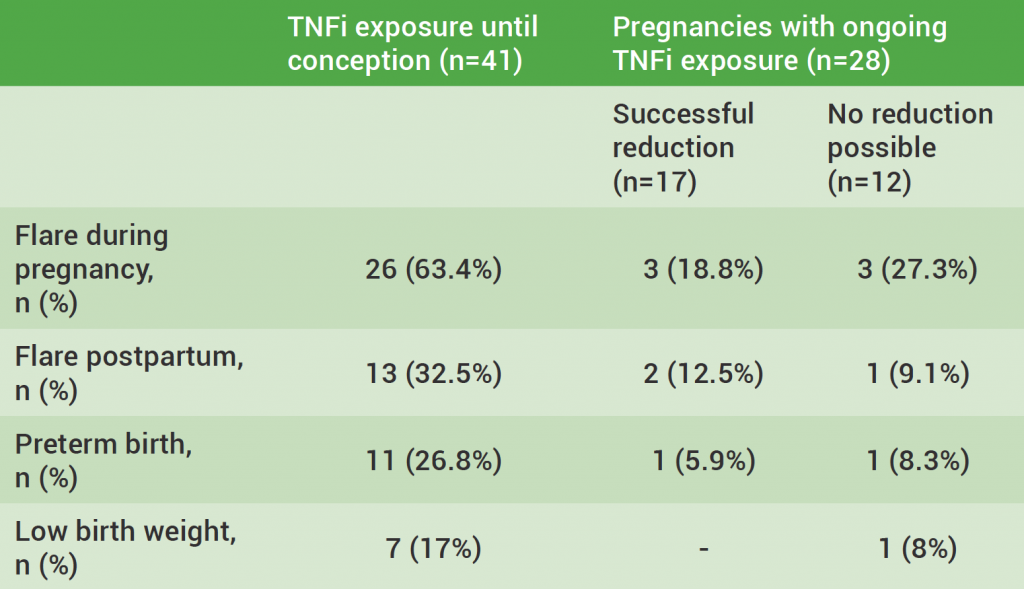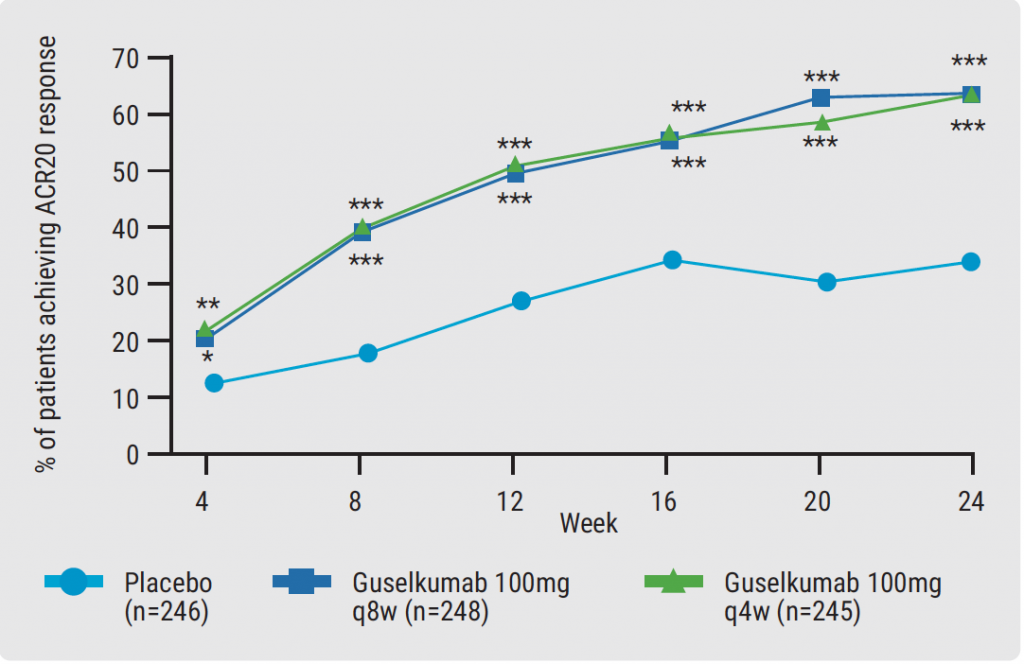Although individuals with elevated ACPA have a higher risk to develop RA, most will not do so. Therefore, an additional biomarker for the prediction of RA is urgently needed. Dr Liam O´Neil (University of Manitoba, Canada) evaluated whether abnormalities in the serum proteome may allow for a better prediction of future disease onset. Using SOMAscan array, quantitative levels of 1,307 proteins were determined in serum samples from 17 first-degree relatives of RA patients who developed inflammatory arthritis synovitis after having been followed prospectively for a mean of 3.2 years. All 17 subjects were ACPA+ at time of inflammatory arthritis diagnosis. In each individual, 2 samples were assessed: 1 at the time of inflammatory arthritis onset and 1 at an earlier timepoint. Protein expression was also compared with that in samples obtained from ACPA+ and ACPA- first-degree relatives who did not develop inflammatory arthritis.
Differential expression of 669 proteins was identified between those who developed inflammatory arthritis and those who did not. Of these, a 23-marker panel could be selected that classified patients at risk to develop inflammatory arthritis. The proteins identified included ITGA2B and HIST1H3A (upregulated in preclinical samples) and protease inhibitors SERPINA5 and ITIH4 (downregulated in preclinical samples). In a validation cohort (n=34), this model correctly classified 31/34 samples (91.2% accuracy) with a sensitivity of 95.6% and specificity of 85.7%. The authors conclude that reproducible differences in the serum proteome can be shown in the serum sample of individuals who ultimately developed inflammatory arthritis – even several years before the onset of clinically evident disease.
- O´Neil L et al. Abstract L07. ACR 2019, 9-13 November, Atlanta (GA/USA).
Posted on
Previous Article
« Biologics show similar activity in patients with elderly-onset RA Next Article
Sustained efficacy of monotherapy with upadacitinib after 48 weeks »
« Biologics show similar activity in patients with elderly-onset RA Next Article
Sustained efficacy of monotherapy with upadacitinib after 48 weeks »
Table of Contents: ACR 2019
Featured articles
Late-Breaking Abstracts
Lowest risk of infection after therapy with an IL-12/IL-23 blocker
Calcium pyrophosphate deposition disease: an independent risk factor for cardiovascular complications
Proteome abnormalities improve prediction of RA development
RA patients in remission benefit from continued therapy with conventional DMARDs
Selective IL-23 blocker shows remarkable efficacy in patients with psoriatic arthritis
Corticosteroid therapy in GCA: higher platelets – lower relapse rate
Spotlight on Rheumatoid Arthritis
Filgotinib promising in RA patients naïve to methotrexate
Sustained efficacy of monotherapy with upadacitinib after 48 weeks
Biologics show similar activity in patients with elderly-onset RA
Tocilizumab outperforms rituximab in RA patients with low level of synovial B cell infiltration
Treatment decisions should not be guided by ultrasound findings
Cancer treatment with checkpoint inhibitors in RA patients?
What is Hot in Systemic Lupus Erythematosus
Anifrolumab succeeds in second phase 3 trial in SLE
Depression closely related to fatigue in SLE patients
Spondyloarthritis – The Beat Goes On
Psoriasis onset determines sequence of symptoms
Higher psychiatric comorbidity in women with PsA
JAK1 inhibition shows remarkable efficacy in AS
CARDAS study shows increased prevalence of cardiac valvular disorders in AS patients
Osteoarthritis – State-of-the-Art
Hand OA: low-dose corticosteroids improve symptoms
Opioids: no quality of life benefits for OA patients
Walking speed is a predictor of mortality in patients with knee OA
Reproductive Issues in Rheumatic Disease
Few serious infections in offspring with exposure to non-TNFi biologics or tofacitinib
Prevention of congenital heart block may be possible with hydroxychloroquine
TNFi for RA during pregnancy – to stop or not to stop?
Vasculitis – Novel Treatment Modalities
Rituximab maintenance superior to azathioprine in ANCA-associated vasculitis
Prolonged remission after stop of tocilizumab for patients with giant cell arteritis
Best of the Posters
Antifibrotic therapy slows disease progression independent of corticosteroid use
Fibromyalgia patients often experienced abuse in childhood
Related Articles

February 4, 2020
TNFi for RA during pregnancy – to stop or not to stop?

February 4, 2020
Walking speed is a predictor of mortality in patients with knee OA
© 2024 Medicom Medical Publishers. All rights reserved. Terms and Conditions | Privacy Policy
HEAD OFFICE
Laarderhoogtweg 25
1101 EB Amsterdam
The Netherlands
T: +31 85 4012 560
E: publishers@medicom-publishers.com

